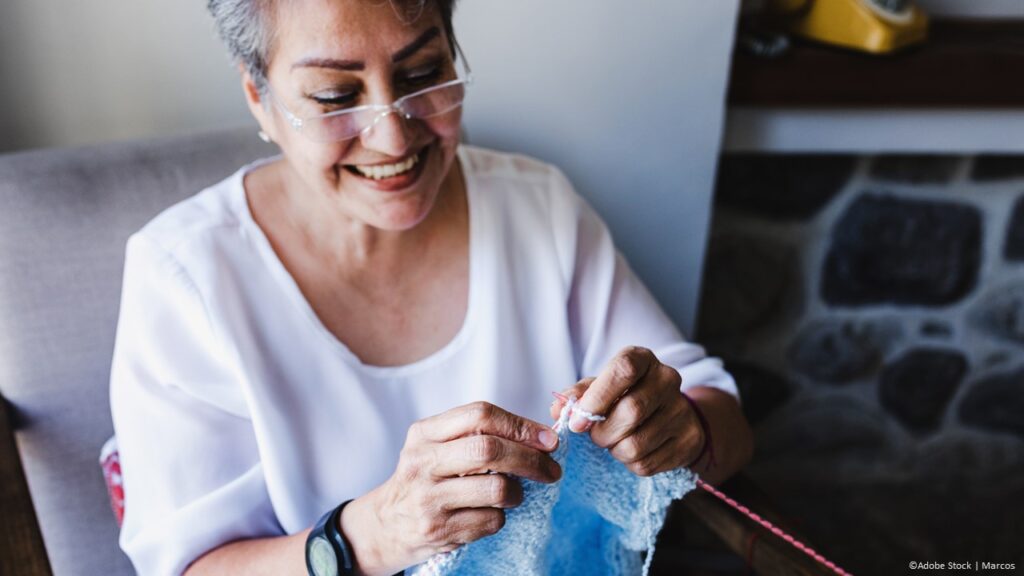Compliance Corner – Issue 3.1
Happy New Year!

Innovating in the Face of Risk: Lessons Learned from Cross-Country Skiing

Have you ever gone backcountry skiing? This style of cross country skiing takes adventurers into challenging new terrain, often in unexplored areas that require advanced skill to navigate. For experienced skiers, the opportunity to break away from the crowded ski resorts is thrilling. However, it’s an adventure that comes with risk. People can get lost in extreme temperatures and harsh conditions. Avalanches can occur without warning, completely wiping out an entire group in an instant. Skiers who want to safely explore away from the beaten slopes must undergo extensive training and preparation, so that they can enjoy the thrill while being prepared to face the dangers. When backcountry skiers go through training, they don’t just learn about skiing techniques or how to find the right path. They prepare for an emergency by imagining that the worst is going to happen, and practicing how they’ll react when it does.
Some people enjoy extreme outdoor sports; others get their thrill by piloting a new idea, starting a new business, or pushing the boundaries of their profession to innovate and create. But just like skiing down an unexplored alpine path, innovation comes with risks: unethical behavior, cut corners, or missed regulations can hit like an avalanche, wiping out the team. VCU is a place where innovation is celebrated, and big ideas are encouraged. Whether you’re a skier or university staff or faculty, you can apply several of the same principles to confront risks and clear the path for your creativity and adventure.
[Backcountry skiers] prepare for an emergency by imagining that the worst is going to happen, and practicing how they’ll react when it does.
Only trailblaze with people you trust. Avalanche safety training includes time spent examining the group dynamics and norms of the people who are skiing together. Does everyone in your group agree on the types of risks they’re prepared to take? Do you understand how each member of your team communicates, and know how to empower them to speak up? Did you start your endeavor together by clearly identifying the goals and desired outcomes? Innovators don’t just need the brightest minds or most creative thinkers; consider building your team to also include experienced people who consistently exhibit strong ethics in the face of pressure.
Be prepared to give up your power. During avalanche safety training, teams are encouraged to assign roles within the group, for quick action during an emergency. One important role: who gets the final say if the group disagrees on where to go or what to do next. As an innovative leader, you might be used to having the final word on how to move forward. However, skiing safety professionals encourage groups to choose the most cautious person to have decision-making power in an unsafe situation. As you launch your new project or initiative, do you have someone on your team whose job it is to be cautious? Who among your advisors can you trust to warn you of potential risks? Do they have direct access to you, and will you empower them if they have something to say? If you can’t identify anyone that you can trust to tell you when you’re being unsafe, you need to reevaluate your inner circle.
Hope for the best, PRACTICE for the worst. When humans are under stress, we go into Fight, Flight, or Freeze mode. This isn’t just for situations like a falling tree or avalanche; this response can happen in times of psychological danger too. We all read the headlines after yet another high profile scandal and think to ourselves, “I would never have done that.” But when you’re facing a crisis or a confrontation, you may not be acting with your highest values in mind. Desperate people can do unpredictable and unwise things. The more you practice what to do when disaster strikes, the easier it will be to fall back on that plan when your rational mind fails you. Think ahead and identify your most urgent risks, and then map out what you’ll do when they become reality. Create a protocol that you and your team can easily follow, and ensure that everybody understands it. Practice doesn’t always make perfect, but it does make you prepared.
At VCU, we want to empower and celebrate students and employees who have creative ideas and innovative ventures. Whether you’re flying down the side of a mountain or on the verge of the next technological breakthrough, time spent assessing risks and preparing for crises will get you safely back home.
Crochet Hooks and Conflicts
A Compliance Case Study

The People:
Cassandra Ruiz – A fiscal administrator in the School of Medicine at VCU. She’s been with VCU for many years, and also owns a business called Bea’s Blankets.
Charlie Evans – An ethics and compliance specialist in VCU’s Integrity and Compliance Office.
The Scenario:
Cassandra sighed as she clicked through the final section of her annual required ethics training. A few more minutes to go and she would be done. The voice from the computer began to speak about conflicts of interest and commitment, and how VCU employees like herself were expected to avoid them. The trainer said, “Employees should avoid prohibited conduct, such as giving or accepting gifts that may influence them in their professional decision-making.” As she listened, an unpleasant feeling began to grow in her stomach. She straightened up and began to scan the words rapidly on the screen. Had she been engaging in “prohibited conduct”? Her mouth dry, she wrote down the number at the end of the training, and hastily punched it into her office phone. A man named Charlie answered.
Charlie: “Hello, you’ve reached the Compliance Office. How can I help you?”
Cassandra: “Hi. My name is Cassandra and I’m a fiscal administrator at VCU. I was just completing my annual training and I’d like to ask someone some questions to make sure I’m not doing something wrong.”
Charlie: “Sure, I can answer your questions! What’s your concern?”
Cassandra: Well first, I have a side business called Bea’s Blankets. I crochet baby blankets and sell them online; I also donate them to neonatal intensive care units at local hospitals. I created the business twenty-five years ago in honor of my daughter, who was born prematurely. That’s not a conflict of commitment, right?
Charlie: It doesn’t sound like it, but let me ask you a few questions. Do you use any VCU time or resources to do work for Bea’s Blankets? For example, do you make blankets while you’re on the clock, or use your VCU computer or email address to do business?
Cassandra: No, I don’t. I crochet in the evenings and on weekends, and I use my personal computer to conduct all of my business and keep my records. I have a business email address where all my correspondence related to the business goes.
Charlie: Okay, perfect. Since your business has nothing to do with your VCU role, you’re not using VCU resources to benefit it, and it’s not affecting your commitment to your VCU time or duties, then there’s no conflict at all. That’s not even something you’d need to disclose to your manager or to our office, since it isn’t related to the work you do at VCU.
Cassandra: Great. I’m glad to hear that. So, here’s my next question. Over the years, I’ve made blankets as gifts for my coworkers who have babies. It’s become something of a tradition–last year, one of my colleagues had a premature baby, and I know the blanket I sent her meant a lot to her. Your training mentioned that giving gifts can cause a conflict of interest. Do I have to stop doing that?
Charlie: No, absolutely not. Being aware of potential conflicts of interest doesn’t mean we have to stop being kind to each other or that we can’t ever give each other gifts. It just means that we think through the ethical ramifications of our actions, and how they might influence our decision-making or the work we do. In your case, it sounds like your gifts are heartfelt and appreciated, but not anything that might influence someone to do something unethical in your favor. I think Bea’s Blankets sounds wonderful, and I’m glad you have been able to use your unique talents and experience to enrich the lives of your coworkers.
Cassandra: Thank you, I’m so relieved to hear that.
Charlie: No, thank you! We appreciate any time someone checks in with us to ask questions like these. I’m glad to hear that you’re thinking about conflicts and how to avoid them; we expect VCU employees to act with ethical values in mind, and it sounds like that’s what you’re doing. I hope you have a great day!
Cassandra: Thanks, you too!
We receive many questions from employees like Cassandra about potential conflicts of interest that often boil down to: do I have to stop being a kind human!? The answer, as Charlie told her, is no. Giving gifts to each other, being kind to each other, and having interests and pursuits outside of work are all normal and wonderful things. What we want to keep in mind is the potential for what we call “undue influence,” which means that the action you’re taking might cause someone to make a decision unfairly in your favor. For example, giving a $100 gift card to your supervisor around performance review time could create a conflict of interest, because they might be more likely to give you a high rating, whether you’ve earned one or not. But the office banding together to take the boss out to lunch on her birthday? Completely okay. The Commonwealth of Virginia actually does not consider anything under the value of $20 to even be classified as a gift, and most of the prohibited conduct to do with gifts discussed in the Virginia Code relates to gifts from third parties such as vendors. When in doubt, you can always reach out and ask the ICO for guidance, to help your peace of mind.
If you want to ensure that you’re acting ethically and avoiding conflicts of interest, here are a few questions to keep in mind:
1What are the power dynamics at play here? For example, if you’re going to ask a student to babysit for you: do you have control over that student’s grades or academic future in any way? If so, you might want to consider holding off until your relationship is different, to avoid them feeling pressured to say yes in order to protect their grade, or to avoid the appearance of favoritism.
2How would this look to an outside spectator? In the age of social media and instant news, we are used to reading sensational stories that turn out to be based on inaccurate facts. As obnoxious as this is, it can give us some practice in thinking about what could be perceived as a potential conflict. Could any headlines come out of this? Even perceived conflicts can create reputational harm for yourself and for VCU. This is why the ICO can help ensure you have safeguards in place so that if eyebrows are ever raised, you have receipts to show that you were acting ethically the whole time.
3Could I be creating an atmosphere of favoritism by doing this? In Cassandra’s case, she was gifting her blankets to coworkers and colleagues. However, let’s change the story a bit: if she were a supervisor, and she only gave gifts to direct reports who had children, her direct reports who were child-free might feel slighted. This is something that’s easy to rectify–adult-sized blanket, anyone?–but still a good idea to think through and proactively avoid.
Guest blogger Sara Jones is the Senior University Compliance Specialist in the Integrity and Compliance Office.
To comment on this month’s Compliance Corner blog, or to suggest a topic for a future blog, please contact our team at (804) 828-2336, or ucompliance@vcu.edu.